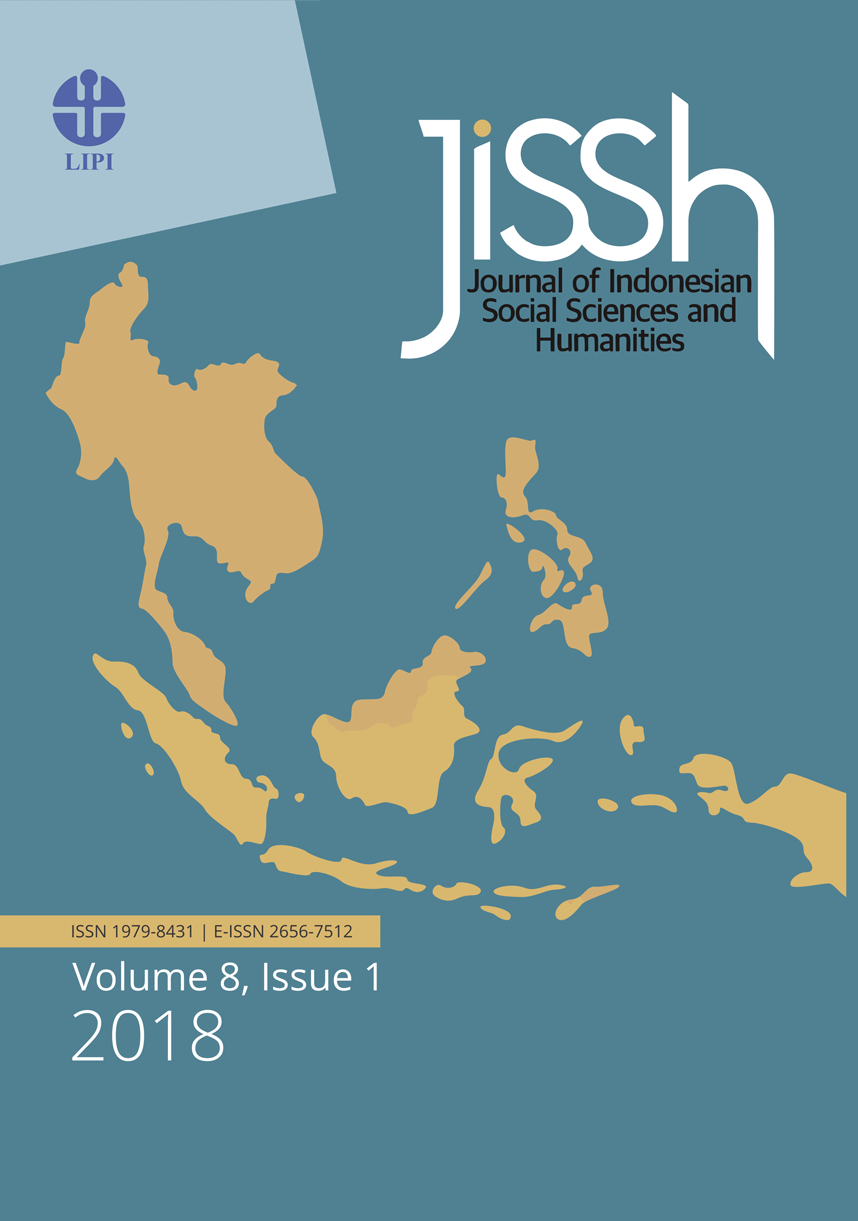Failure of Bilateral Diplomacy on Irian Barat (Papua) Dispute (1950-1954)
Keywords:
the Netherlands, Indonesia, status quo, Irian Barat (Papua), DiplomacyAbstract
Fundamentally, Irian Barat (Papua) dispute between The Netherlands–Indonesia was a territorial
conflict or an overlapping claim. The Netherlands as the former colonialist did not want to leave Irian Barat
(Papua) or remained still in the region, meanwhile Indonesia as the former colony denied the Netherlands
status quo policy in Irian Barat (Papua). Potential dispute of the Irian Barat (Papua) was begun in the Round
Table Conference (RTC) 1949. There was a point of agreement in RTC which regulates status quo on Irian
Barat (Papua) and it was approved by Head of Indonesia Delegation, Mohammad Hatta and Van Maarseven,
Head of the Netherlands Delegation. As a mandate of the RTC in 1950s there was a diplomacy on Irian Barat
(Papua) in Jakarta and Den Haag. Upon the diplomacy, there were two negotiations held by diplomats of both
countries, yet it never reached a result. As a consequence, in 1954 Indonesia Government decided to stop
the negotiation and searched for other ways as a solution for the dispute. At the present time, Jakarta-Papua
relationship is relatively better and it is based on a special autonomy, which gives great authority to the Local
Government of Papua.
References
Abdulgani, R. (1956). “Laporan Menteri Luar Negeri kepada kepada Sidang Umum DPR pada 9 Juli 1956”, Taufan dalam Politik Luar Negeri. Jakarta; Penerbit Endang
Abdulgani. R., Gromyko, A., Komunike Bersama Menteri Luar Negeri, 11 September 1956.
Bhakti, I.N. (1985) Intervensi Amerika Serikat dalam penyelesaian Politik Masalah Irian Barat, Masalah-Masalah Internasional Masa Kini. 13(1), 4.
Bone. R. C. (1962). Jr. The Dynamic of the Western New Guinea (Papua) Problem. New York: Publisher Cornell University
Chauvel, Richard. (2005). Constructing Papuan Nationalism: History, Ethnicity, and Adaption. Washington: The East-West Center
Departmen of Public Information. (1954). Year Book of United States Organization 1954, NY: UNO
Dipna Videlia Putsanra. 2018, November 25. Dana Otsus Papua Barat 2019 Naik Jadi Rp2,5 Triliun, Retrieved from https://tirto.id/dana-otsuspapua-barat-2019-naik-jadi-rp25-triliun-dar1
Departemen Luar Negeri. (1971). Dua Puluh Lima Tahun Departemen Luar Negeri 1945-1970. Jakarta: Penerbit Direktorat Penelitian dan Pengembangan
Gardner, P. (1999). 50 tahun Amerika Serikat-Indonesia, trans. Pericles Katoppo. Jakarta: P.T. Sinar Harapan Press.
Kemlu, (n.d) Momen Penting dalam sejarah Diplomasi Indonesia, retrieved from http;// www.kemlu.go.id,
Soerjoadingrat, A.W. (1954). Surat-surat Sekretaris Dewan Menteri kepada Menteri Luar Negeri Sunario, tanggal 10 February 1954
Subandrio, (2001). Meluruskan Sejarah Perjuangan Irian Barat. Jakarta: Yayasan Kepada Bangsaku
Suwarno, B. (1999). Hubungan Indonesia-Belanda Peiode 1945-1950. Jakarta: Penerbit Printing Upakara
Said, T. (1984). Indonesia dalam Politik Global Amerika Serikat. Medan: Penerbit Waspada Sastramidjojo, A. (1974). Tonggak-Tonggak di Perjalananku, Jakarta: PT. Kinta
Siswanto. (2016). Diplomasi Belanda dan Indonesia dalam Sengketa Irian Barat, 1949-1950: Sebuah Kajian Sejarah. Jurnal penelitian Politik 2 (1), 65-72, retrieved from http://ejournal.politik.lipi.go.id/index.php/jpp/article/view/402/229
Pohan, D. (2002). Kembali ke Jatidiri Bangsa Indonesia. Jakarta: Milineum Publisher Undang-undang No.13 tahun 1956 tentang Pembatalan Hubungan Indonesia-Belanda Berdasarkan Perdjnjian Konperensi Medja Bundar
Natanegara, S. (1986). Api Perjuangan Irian Barat. Jakarta: Yayasan Badan Kontak Keluarga Besar Pejuang Irian Barat
Panitia Peringatan 75 tahun Kasmsn. (1982). Hidup itu Berjuang: kasman Singodimejo 75 tahun. Jakarta: Penerbit Bulan Bintang
United Nations Organization Charter, (1945). NY: UNO
Yamin, M. (1954).”Script FIN-EC”, Commissioner General of the Republic of Indonesia in The Hague
Downloads
Published
Issue
Section
License

This work is licensed under a Creative Commons Attribution-ShareAlike 4.0 International License.
Authors who publish with this journal agree to the following terms:
1. Authors retain copyright and grant the journal right of first publication with the work simultaneously licensed under an Attribution-ShareAlike 4.0 International (CC BY-SA 4.0) license. This license allows others to remix, adapt, and build upon the work, as long as they credit the author and license their new creations under the same terms.
2. Authors may enter into separate, additional contractual arrangements for the non-exclusive distribution of the journal’s published version of the work (e.g., posting it to an institutional repository or including it in a book), provided there is an acknowledgment of its initial publication in this journal.
3. Authors are permitted and encouraged to post their work online (e.g., in institutional repositories or on their personal website) prior to and during the submission process, as this can lead to productive exchanges and increase citations of the published work (See The Effect of Open Access ).


















